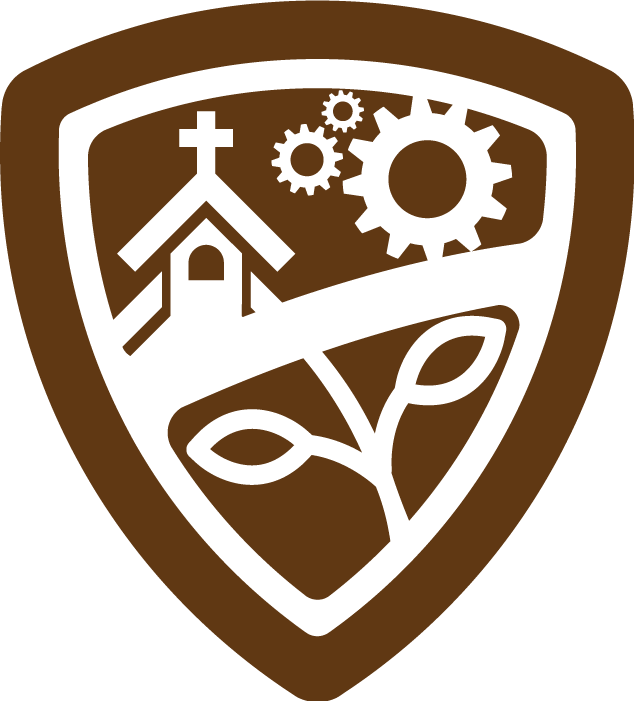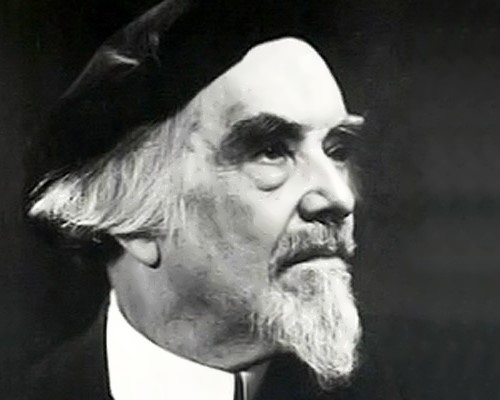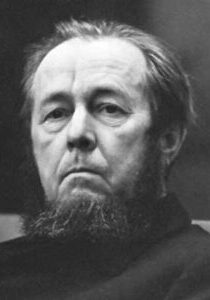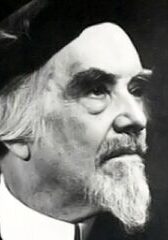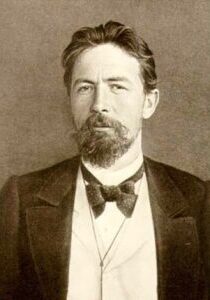Nikolai Berdyaev
March 18, 1874 - March 24, 1948
Philosopher and Writer
Philosopher and Writer
From Kiev, Russia
Served in Moscow, Russia
Affiliation: Russian Orthodox
"There is a tragic clash between Truth and the world. Pure undistorted truth burns up the world."
Berdyaev was born on March 6, 1874, in Kiev. His father had come from a military family and was himself an officer in the Imperial Guards. His mother, Princess Kudashev, was half French, but also belonged to Polish nobility. The family religion was Orthodox.
Early in his life he developed a tic douloureux which caused him both discomfort and embarrassment throughout his life. He attended the Military Cadet Corps of Pages and spent six years there finding both the regimentation and the “worldly society of the upper class” distasteful.
When Berdyaev entered the University of Kiev in 1894, he did so as a law student. He became involved in Marxist activities, was arrested, then exiled in 1898 to Vologda. His expulsion from the university ended a formal course of education. Although he studied at other universities, he never earned a degree. His first book was written during his exile and indicated a trend away from Marxism toward personalism.
Upon his return from exile in 1901, Berdyaev became acquainted with Sergius Bulgakov, a former Marxist and professor of economics at Kiev. Bulgakov awakened his religious interests. The two became lifelong friends.
Berdyaev then spent a term at the University of Heidelberg in 1903 in order to hear the philosophy lectures of Wilhelm Windelband. When he returned to Russia, he married Lydia Yudifovna and settled in St. Petersburg, where for two years he helped Bulgakov edit Novi Put(The New Way), a journal of literary, political, and philosophical analysis. In 1907 he traveled to Paris to find out about the current religious and philosophical movements going on there. He moved to Moscow on his return and joined a religio-philosophical society there, founded in honor of Vladimir Solovyev. During the fourteen years he spent in Moscow, he participated in the religious and cultural revival going on in Russia at the time. Moreover, he became a loyal though nonconformist member of the Orthodox Church. Brought to civil trial in 1914 because of an article criticizing the Holy Governing Synod, he escaped sentence in 1917 when World War I and the Communist Revolution intervened.
The Free Academy of Spiritual Culture which Berdyaev founded in 1918 possessed semiofficial status at first, but government displeasure and repression increased to the point where Berdyaev was prohibited from publishing his lectures there, and announcements of its activities were forbidden. Yet in 1920 he received an appointment to the chair of philosophy at the University of Moscow. Berdyaev then and afterwards had mixed views of the revolution. Although he condemned the crimes and violence of the Soviet order, he believed, unlike most of his fellow emigrées, that the seeds of messianism were present in post-revolutionary Russia. Nevertheless he was expelled in 1922 from the U.S.S.R., together with a number of other Russian intellectuals.
After spending two years in Berlin where he lectured at the newly founded Russian Scientific Institute and where he established the Religious-Philosophical Academy, Berdyaev, his wife, and sister-in-law moved to Clamart outside Paris, which had replaced Berlin as the center of the Russian community abroad. He re-established the Academy in Paris and founded a monthly journal Put (The Way) devoted to religious philosophy. The journal was continued until the beginning of World War II. Berdyaev was also reunited with Bulgakov, who had become the dean of the newly founded Russian Theological Academy.
In 1939 an invitation to lecture at the Sorbonne was extended to Berdyaev and the revised French edition of his Freedom and the Spirit won an award from the French Academy. The years of the German occupation of France during World War II were not extremely difficult for him despite the fact that the Gestapo questioned him several times. Two years after the war ended, Cambridge University conferred an honorary doctorate of divinity upon him. The following year, 1948, three years after the death of his wife, he died on March 23 (some accounts report the 24th). There were no children.
This is not our work. It can be found here.
